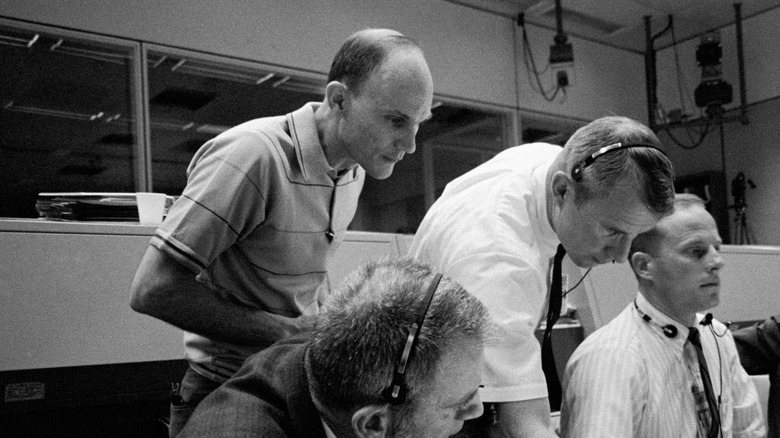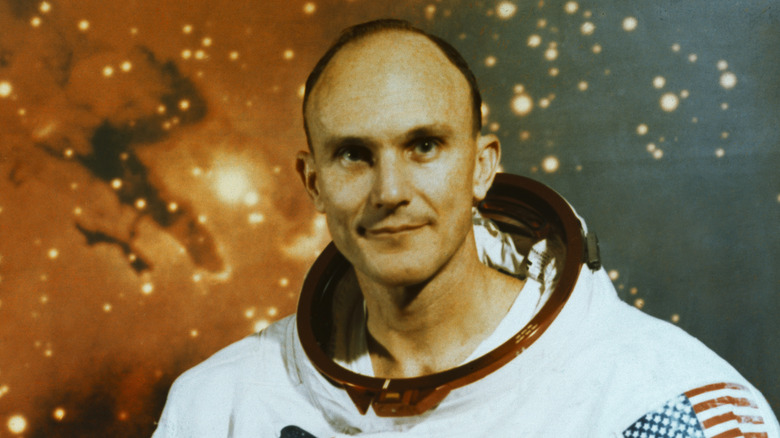How Ken Mattingly Helped Save The Imperiled Crew Of Apollo 13
Former NASA astronaut and United States Navy Rear Admiral Thomas K. "Ken" Mattingly II died at the age of 87 years old on October 31, 2023, per an official statement from NASA. Mattingly was a part of several vital NASA missions including, Apollo 8, Apollo 11, Apollo 13, and several Space Shuttle missions before retiring in 1985 from the agency, according to his NASA biography.
While contributing to the mission of any NASA endeavor is worthy of remembrance and is an historic achievement, Mattingly's perhaps most famous contribution was during the Apollo 13 mission. That mission is famous for not only having a movie made that chronicles the events of the mission, but also because it was very nearly a total disaster that would have cost the lives of three astronauts: James Lovell, John Swigert, and Fred Haise.
Mattingly was originally going to pilot the spacecraft's command module, but was replaced with Swigert after a rubella scare. The mission went on to launch on April 11, 1970.
The 'successful failure'
Reportedly, the launch went off without a hitch, and the actual trip to Apollo 13's destination of the moon's orbit was uneventful. However, that all changed when an oxygen fuel tank onboard the Odyssey command module spacecraft exploded — endangering the entire mission, as well as the astronaut's lives.
Mattingly, and all of the incredible minds at NASA on the ground in Houston, now had to bring the astronauts safely home. In space, the astronauts onboard the Odyssey had to seek refuge in the Aquarius landing module and shut down the command module to save fuel and power.
At this point, condensation and quickly dwindling resources became constant worries. In an interview, Mattingly noted that he had a creative blank check on the ground to help out with getting the astronauts home in anyway he could, since he didn't have a specific task after being replaced. His several thousand hours of flight experience quickly became valuable.
With the rest of the ground crew, Mattingly was instrumental in coming up with new procedures to both power up the command module with extremely limited resources, and preventing the crew from dying of carbon dioxide buildup during the ride back home. After a harrowing trip around the moon's orbit, the "Successful Failure" of a mission concluded after the space capsule safely splashed down in the Pacific Ocean on April 17, 1970 — all three astronauts were recovered by the USS Iwo Jima.
During the successful Apollo 16 mission that launched on April 16, 1972, Mattingly commanded the spacecraft that orbited the moon, where he used cameras and other sensors to record video and capture pictures of the moon's surface.

